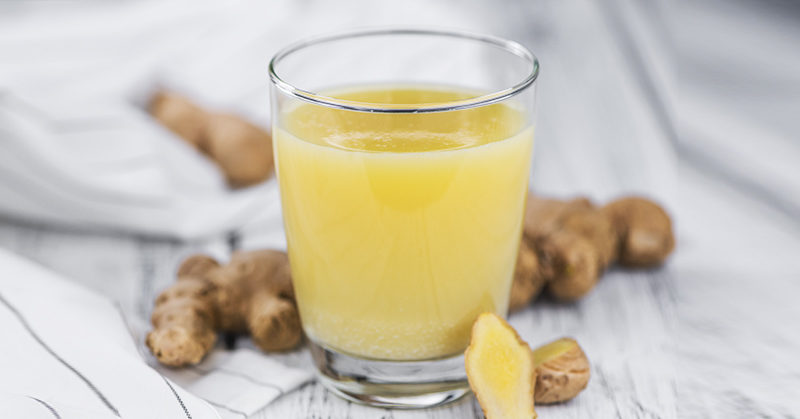Ginger has been a long-standing member of the “superfoods” club. Its anti-inflammatory, immune-supporting properties have made it a staple in the kitchens of many health-conscious individuals, and the potent spice is a common ingredient in many Asian dishes. While it can be incorporated into many recipes, one of the easiest ways to capitalize on the health benefits of ginger is to drink it in the form of ginger juice.
The Benefits of Ginger Juice
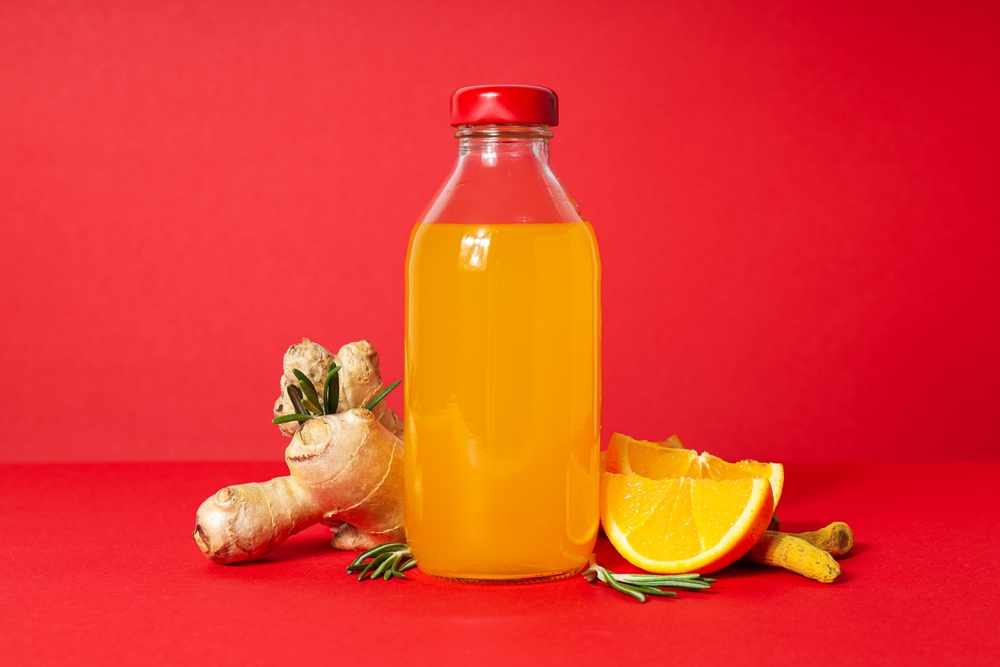
Ginger contains a significant amount of nutrients and bioactive compounds that make it one of the healthiest spices on Earth. The main bioactive compound in ginger is gingerol, which has anti-inflammatory and antioxidant properties [1].
1. Ginger Can Boost your Immune System

Ginger can help improve your immune system because of its anti-inflammatory properties. Chronic inflammation can harm your immune system and weaken its ability to fight disease [2]. Foods that are rich in antioxidants, like ginger, can help to combat that inflammation and help to keep your immune system healthy. There have been several animal studies that have shown ginger to be effective at enhancing the immune response, and it has received considerable interest with regard to its potential therapeutic use for the prevention and treatment of various diseases [3,1].
Read More: 12 Health Benefits Of Ginger – Nausea, Pain, Inflammation, Heart Burn, And More
2. Ginger Can Aid in Digestion

Many people suffer from chronic indigestion, which is recurrent pain or discomfort in the upper part of the stomach. One of the main causes of chronic indigestion is delayed gastric emptying- aka, how long it takes for food to leave your stomach.
Ginger has been shown to drastically reduce the time it takes for your stomach to empty after a meal. One study of 24 healthy participants showed that taking ginger before a meal sped up gastric emptying time by fifty percent [4]. This can reduce the pain of indigestion significantly, if not eliminate it altogether.
3. Ginger Can Help Reduce Nausea

Ginger appears to be highly effective against nausea and has been used as an anti-sickness remedy for many years [5].
In particular, ginger has been shown to provide significant relief for pregnant women who are suffering from morning sickness. Several studies have shown that just 1.1 to 1.5 grams of ginger can significantly reduce nausea in pregnant women. It did not, however, have any effect on vomiting [6]. As always, talk to your doctor if you are pregnant and consider using ginger (or any other supplement) to reduce pregnancy-related symptoms.
4. Ginger Can Help Prevent Cancer
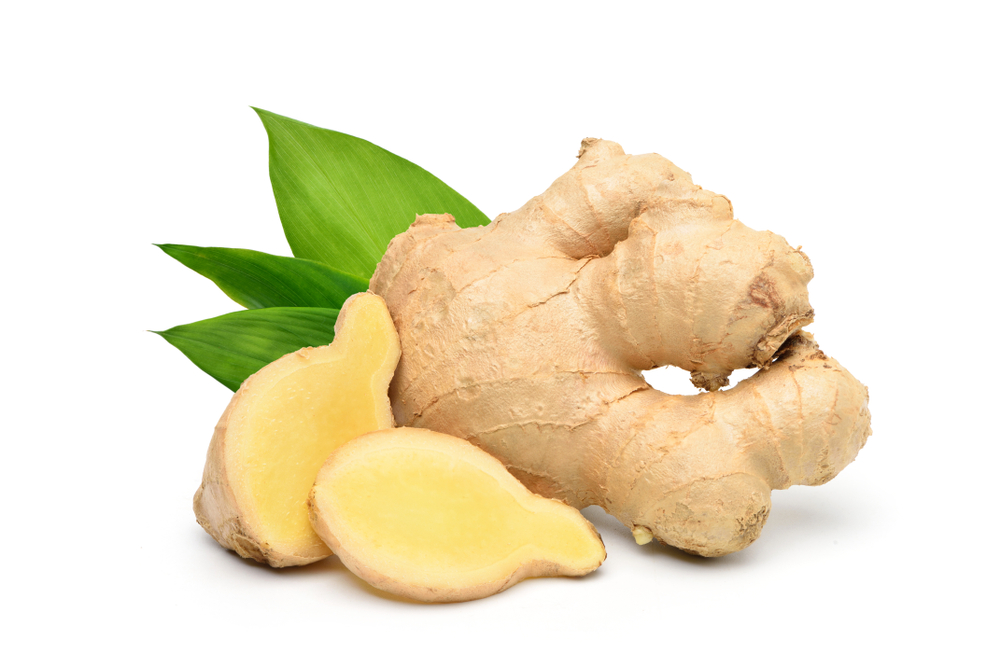
The anti-cancer properties of ginger can be attributed to gingerol, the substance mentioned earlier that is found in large amounts in raw ginger [7]. There have been many studies that focus on chemoprevention, which is the use of natural or synthetic substances to prevent the onset of cancer or inhibit its progression. There is an increasing body of evidence that ginger has an inhibitory effect on various types of cancer, including colon cancer, breast cancer, and ovarian cancer, however, more research needs to be done to determine exactly how it does this, and how we can harness it in cancer treatments [7].
5. Ginger Can Help Protect Against Alzeihmer’s
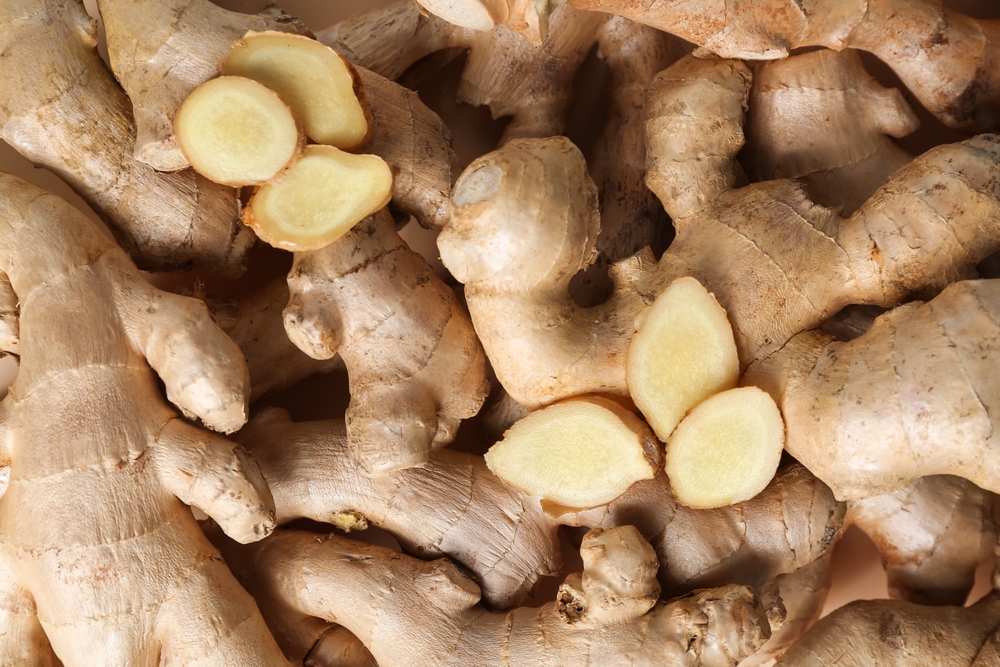
Experts believe that oxidative stress and chronic inflammation are two of the main factors that lead to Alzheimer’s disease and age-related cognitive decline. Ginger’s high gingerol content, along with other related bioactive compounds like shogaols has been shown to reduce the inflammatory response that occurs in the brain with age in animal studies [8].
Other studies have shown that gingerol can directly enhance brain function. One study gave sixty middle-aged women a daily dose of ginger extract and found that after two months the women showed increased cognitive function and reaction time when compared with a control group [9].
6. Ginger Can Help Reduce Arthritis Pain

Again, ginger’s efficacy in reducing joint pain caused by arthritis can be attributed to the anti-inflammatory properties of its main bioactive compound, gingerol. Studies have shown that concentrated doses of ginger extract can reduce joint inflammation and relieve arthritis pain [10].
Ginger can also be effective against Gout, another form of arthritis that is caused by uric acid buildup in the blood. One study showed that applying ginger topically, in the form of a paste, reduced patients’ pain that was caused by high levels of uric acid [11]. Other animal studies have also suggested that ginger taken internally can reduce serum uric acid levels, and therefore reduce pain [12].
7. Ginger Can Help Lower Blood Sugar
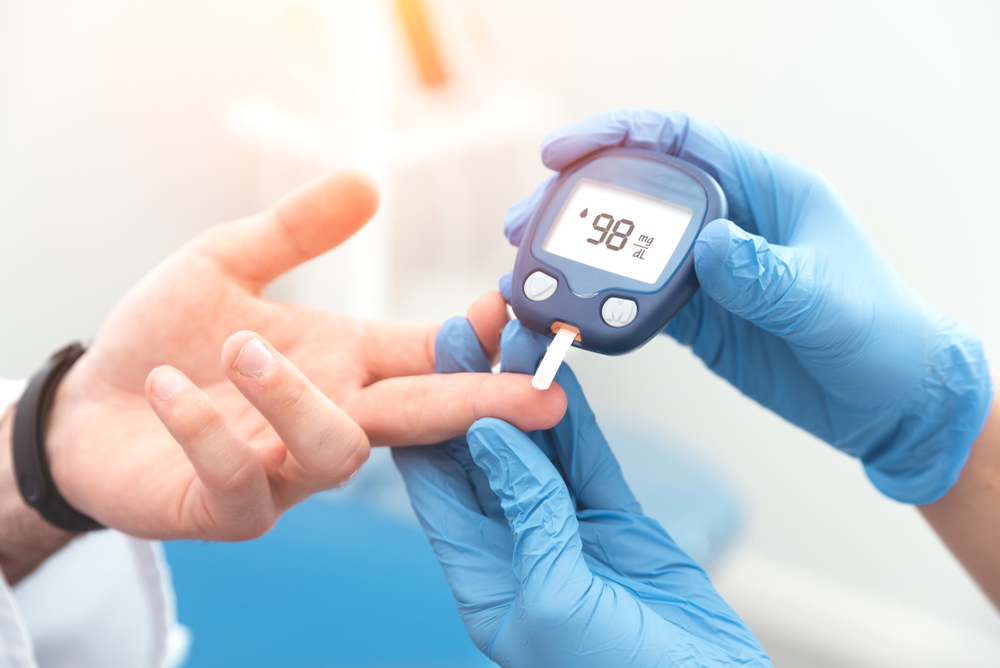
A 2015 study of patients with type II diabetes found that two grams of ginger powder per day lowered blood glucose levels by twelve percent, and improved HbA1c, which denotes long-term blood sugar levels, significantly. This led to a ten percent reduction in blood sugar levels over a period of twelve weeks [13]. Although this is a small study, these numbers are very impressive and warrant future research, as this could also greatly reduce someone’s risk for heart disease.
How to Make Ginger Juice

There are many recipes for ginger juice available on the internet and in cookbooks. While they all, of course, contain ginger, there are often other ingredients that are added for flavor and for added nutrition. To make juice, you do need a juicer, however, you could also make ginger juice in a blender, however, that will change the consistency and flavor somewhat. Lastly, if all you want is the ginger, you can always enjoy a shot straight up!
Read More: Doctors Warn Not to Use Ginger If You’re On Any Of These Medications
Ginger, Turmeric, Carrot Juice
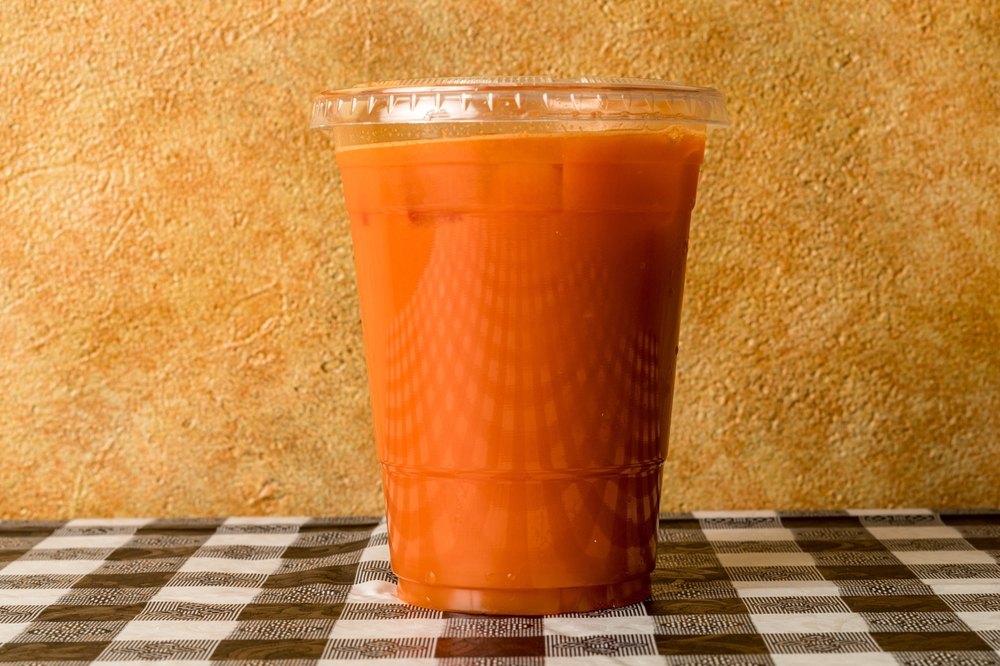
This recipe for Ginger, Turmeric, and Carrot Juice combines the anti-inflammatory properties of ginger with the powerful health benefits of turmeric and carrot to provide you with a health boost.
Serves: 1
Prep Time: 3 minutes
Cook Time: 2 minutes
Ingredients:
- 3 or 4 organic carrots
- 1 red organic apple
- 1/2 a piece of organic ginger root
- 1/2 a piece of organic turmeric root
- 1/4 organic lemon, peel, and all!
You will need to make this recipe with a juicer.
Instructions
- Place all ingredients in a juicer or blender.
- Blend together.
- Enjoy!
Ginger, Celery, Cucumber & Lemon Juice
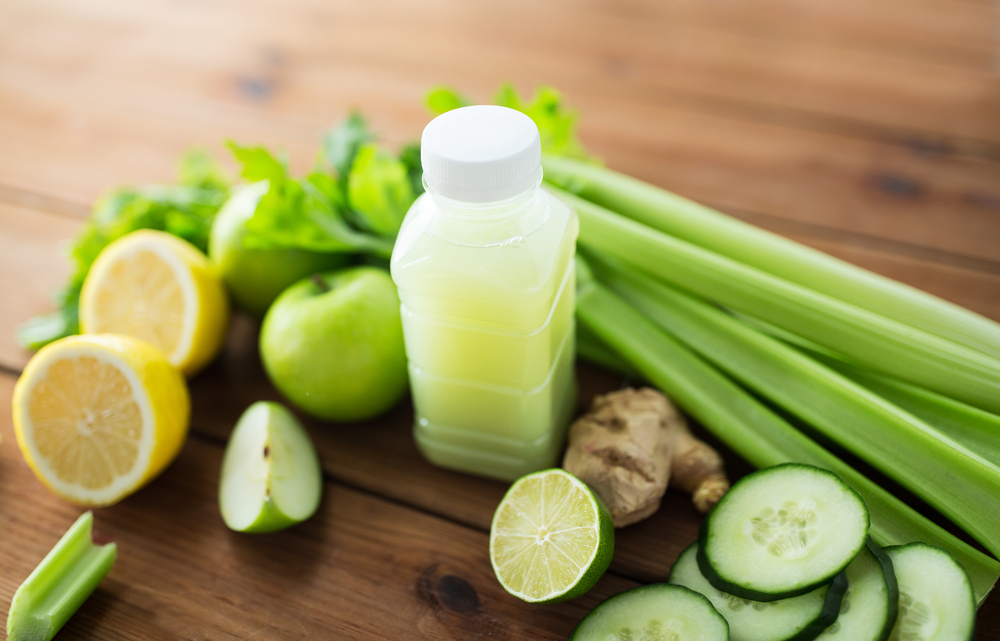
Here’s an excellent recipe that combines cucumber, celery, lemon, and ginger.
Prep time: 5 minutes
Blend time: 5 minutes
Total time: 10 minutes
Ingredients
- 1 medium-sized cucumber
- 3 stalks celery
- 1 slice lemon
- 1 one-inch young ginger root
Instructions
- Wash ingredients thoroughly.
- Cut cucumber and celery into small pieces.
- Peel and chop the ginger root.
- Add the slice of lemon along with the other ingredients and juice them together.
What are Ginger Shots?
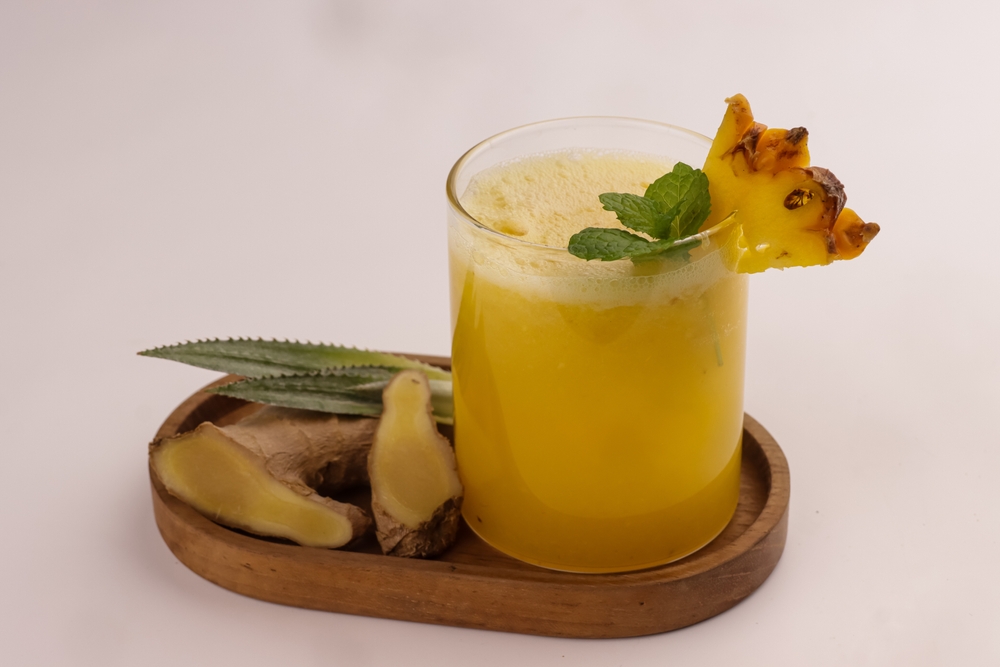
You may have also heard of people taking ginger shots. These are similar to juice, except they are much more concentrated. Some ginger shots may contain only ginger, while others may also include other beneficial ingredients like lemon juice, orange juice, turmeric, cayenne pepper, or manuka honey. Ginger shots are very strong and can be unpleasant to drink, which is why they are often taken in small quantities.
They provide all of the benefits of ginger juice, just in a condensed form that is quicker to take. Ginger shots are considered safe for most people, however, people on blood thinners or people with diabetes who are taking blood sugar-lowering medications should talk to their doctor before adding ginger shots to their health routine [14].
Do I Have to take Ginger in the Morning?

There is no evidence to suggest that drinking ginger juice in the morning provides extra benefits when compared to drinking it at other times of the day. Some suggest that including it in your morning routine helps you cement it better as a habit, but the benefits are the same at any point of the day. Some also feel that including ginger juice in the morning helps them to feel energized, however, this really all comes down to preference.
One Final Tip: How to Peel Ginger
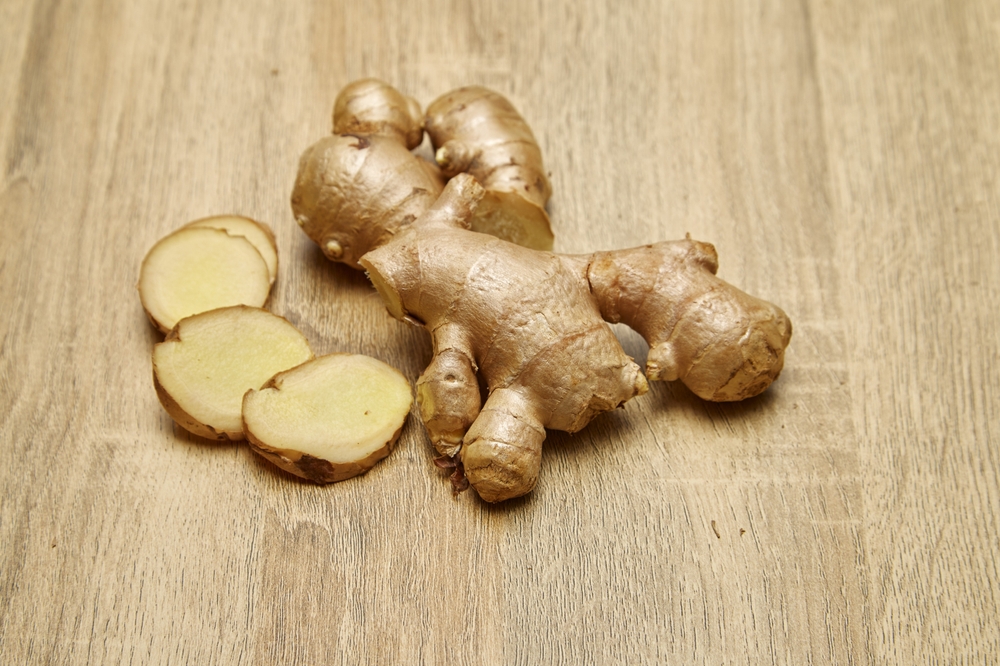
Whether you’re making juice or you’re adding ginger to your next stir-fry, gingers can be difficult to peel. Surprisingly the easiest way to peel ginger is not with a potato or vegetable peeler, but actually with the back of a spoon. This way you will keep as much of the valuable ginger flesh as possible. All you have to do is run the concave side of the spoon down the knob, and the skin will peel right off. If you’re using a juicer, this may not be necessary but if you’re blending it or using it in food, peeling ginger properly is a must!
Read More: Don’t Use Ginger If You Belong To Any Of These 5 Groups Of People
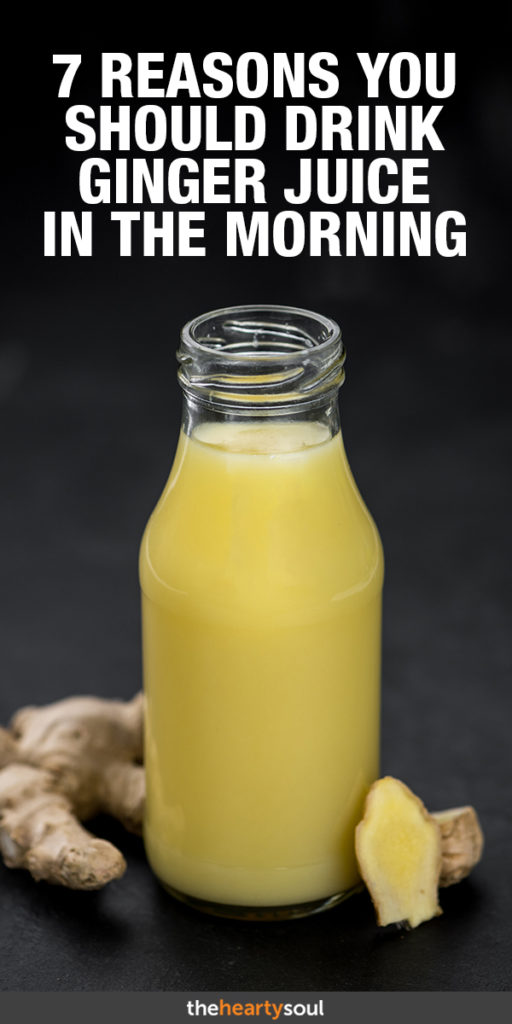
Sources
- https://pubmed.ncbi.nlm.nih.gov/25230520/
- https://pubmed.ncbi.nlm.nih.gov/29861127/
- https://pubmed.ncbi.nlm.nih.gov/30011890/
- https://pubmed.ncbi.nlm.nih.gov/18403946/
- https://pubmed.ncbi.nlm.nih.gov/10793599/
- https://www.ncbi.nlm.nih.gov/pmc/articles/PMC3995184/
- https://pubmed.ncbi.nlm.nih.gov/24552266/
- https://www.ncbi.nlm.nih.gov/pmc/articles/PMC4211852/
- https://www.ncbi.nlm.nih.gov/pmc/articles/PMC3253463/
- https://pubmed.ncbi.nlm.nih.gov/12468270/
- https://www.ijstr.org/final-print/oct2017/Effect-Of-Red-Ginger-Compress-To-Decrease-Scale-Of-Pain-Gout-Arthiris-Patients.pdf
- https://www.journalijar.com/uploads/666_IJAR-7458.pdf
- https://www.ncbi.nlm.nih.gov/pmc/articles/PMC4277626/
- https://www.healthline.com/nutrition/ginger-shots#downsides
